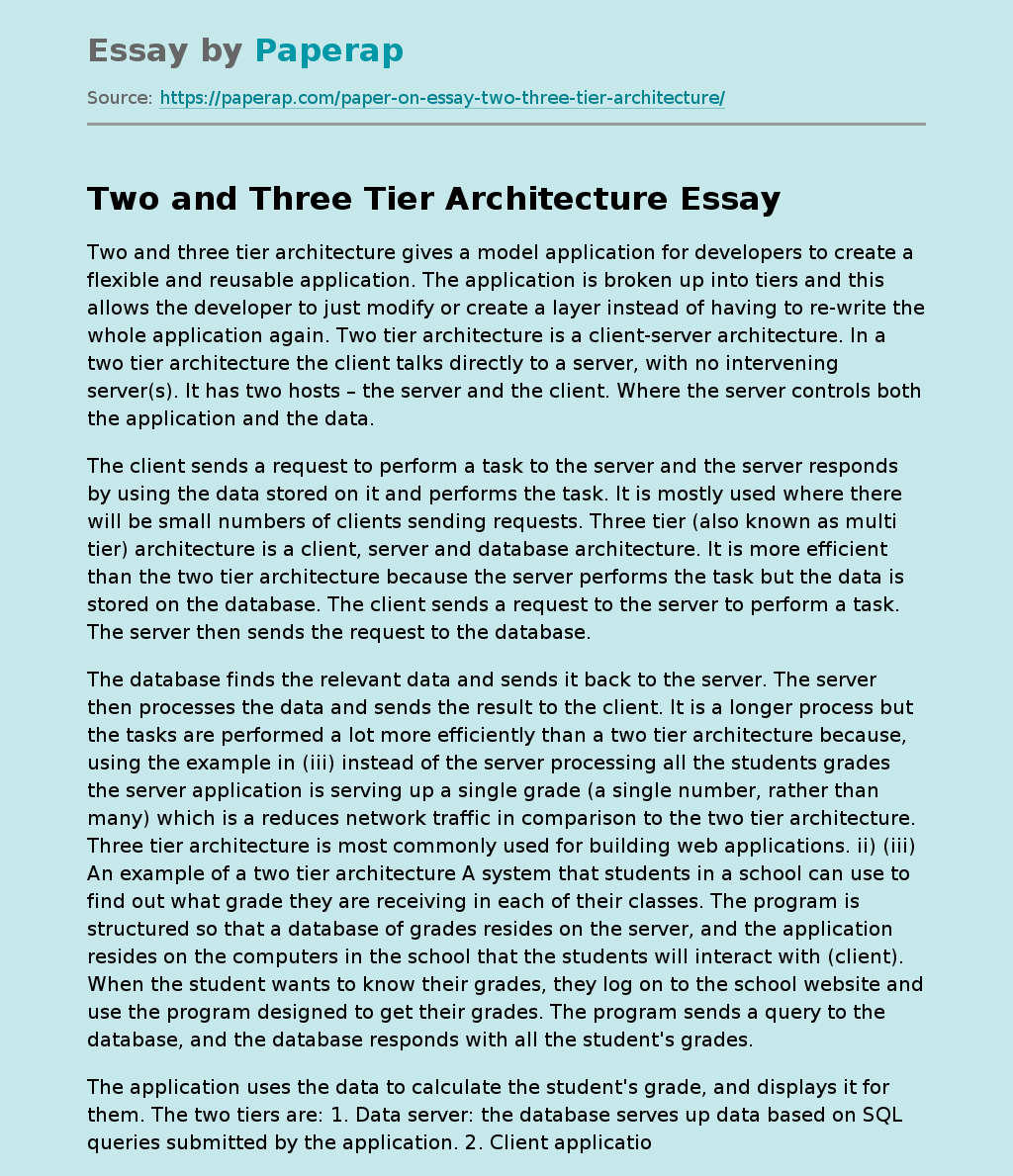Two and Three Tier Architecture
Two and three tier architecture gives a model application for developers to create a flexible and reusable application. The application is broken up into tiers and this allows the developer to just modify or create a layer instead of having to re-write the whole application again. Two tier architecture is a client-server architecture. In a two tier architecture the client talks directly to a server, with no intervening server(s). It has two hosts – the server and the client. Where the server controls both the application and the data.
The client sends a request to perform a task to the server and the server responds by using the data stored on it and performs the task. It is mostly used where there will be small numbers of clients sending requests. Three tier (also known as multi tier) architecture is a client, server and database architecture. It is more efficient than the two tier architecture because the server performs the task but the data is stored on the database.
The client sends a request to the server to perform a task. The server then sends the request to the database.
The database finds the relevant data and sends it back to the server. The server then processes the data and sends the result to the client. It is a longer process but the tasks are performed a lot more efficiently than a two tier architecture because, using the example in (iii) instead of the server processing all the students grades the server application is serving up a single grade (a single number, rather than many) which is a reduces network traffic in comparison to the two tier architecture.
Three tier architecture is most commonly used for building web applications. ii) (iii) An example of a two tier architecture A system that students in a school can use to find out what grade they are receiving in each of their classes. The program is structured so that a database of grades resides on the server, and the application resides on the computers in the school that the students will interact with (client). When the student wants to know their grades, they log on to the school website and use the program designed to get their grades. The program sends a query to the database, and the database responds with all the student’s grades.
The application uses the data to calculate the student’s grade, and displays it for them. The two tiers are: 1. Data server: the database serves up data based on SQL queries submitted by the application. 2. Client application: the application on the client’s computer computes the data and presents it to the student. An example of a three tier architecture A website that answers questions for clients eg. Askjeeves. com The web browser is a web browser. The application that changes the client’s question into code is the server application.
The server then queries the database for the question the client asked and returns the data to the client. (iv) The three tier architecture would suit Arrows because all the data on customers, the car, the bill, etc. can be stored on a database and a server can be used to access this data. While if a two tier architecture was used then the data would have to be stored on the server and this would lead to the system being slow, as there is so much data to be stored and accessed. References: www. scribd. com www. dotnetfunda. com www. slideshare. net www. posa3. org www. virtu-software. com
Two and Three Tier Architecture. (2017, Mar 10). Retrieved from https://paperap.com/paper-on-essay-two-three-tier-architecture/

